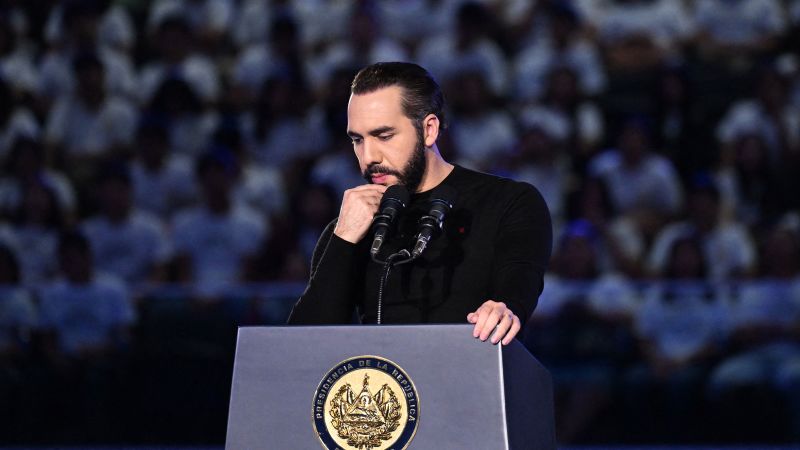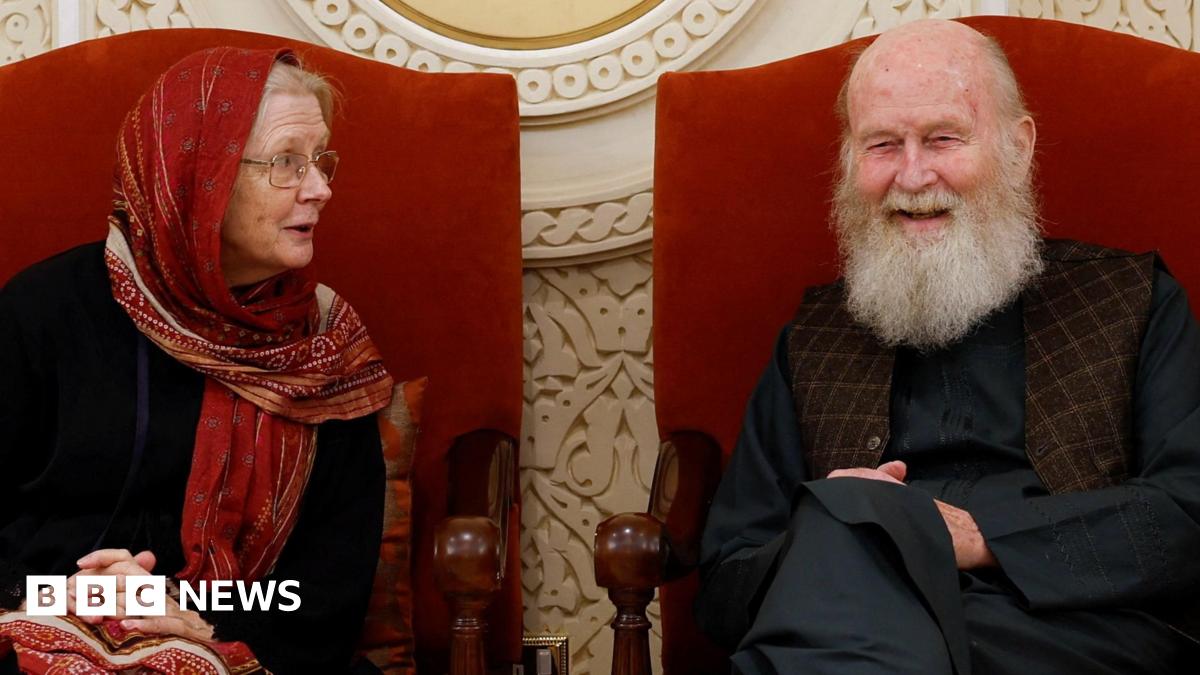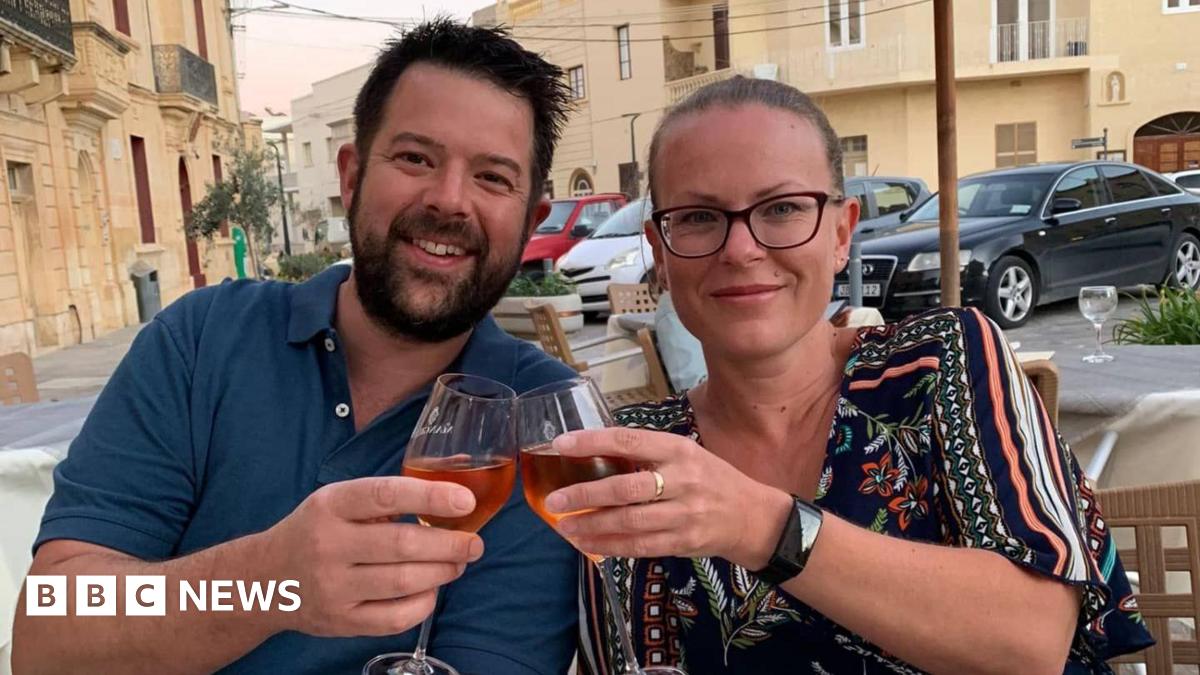Democracy In Peril: Analyzing Bukele's Consolidation Of Power In El Salvador

Welcome to your ultimate source for breaking news, trending updates, and in-depth stories from around the world. Whether it's politics, technology, entertainment, sports, or lifestyle, we bring you real-time updates that keep you informed and ahead of the curve.
Our team works tirelessly to ensure you never miss a moment. From the latest developments in global events to the most talked-about topics on social media, our news platform is designed to deliver accurate and timely information, all in one place.
Stay in the know and join thousands of readers who trust us for reliable, up-to-date content. Explore our expertly curated articles and dive deeper into the stories that matter to you. Visit Best Website now and be part of the conversation. Don't miss out on the headlines that shape our world!
Table of Contents
Democracy in Peril: Analyzing Bukele's Consolidation of Power in El Salvador
El Salvador is facing a critical juncture. President Nayib Bukele's increasingly authoritarian rule has raised serious concerns about the future of democracy in the country. His consolidation of power, achieved through a combination of shrewd political maneuvering, controversial legal changes, and a carefully cultivated public image, presents a stark warning about the fragility of democratic institutions, even in seemingly stable nations. This article delves into the key strategies Bukele has employed and analyzes the implications for El Salvador and the wider region.
Bukele's Rise to Power and the Erosion of Checks and Balances:
Nayib Bukele's election in 2019 marked a departure from traditional Salvadoran politics. He campaigned on an anti-establishment platform, promising to tackle corruption and gang violence – issues deeply resonant with the Salvadoran population. However, his approach has increasingly deviated from democratic norms. His administration has systematically weakened the judiciary and legislative branches, undermining the crucial checks and balances inherent in a healthy democracy.
Key Strategies for Consolidating Power:
-
Control of the Legislature: Bukele's Nuevas Ideas party achieved a supermajority in the National Assembly, effectively silencing opposition voices and allowing the passage of legislation favorable to his agenda, often with minimal debate or transparency. This legislative dominance has allowed him to push through significant changes to the judiciary and electoral systems.
-
Reforming the Supreme Court: The replacement of Supreme Court justices with Bukele loyalists has significantly weakened the judicial branch's ability to act as an independent check on executive power. This move has been widely criticized by international human rights organizations as a blatant attack on the rule of law. [Link to relevant Human Rights Watch report]
-
Curbing Freedom of the Press: Journalists critical of the Bukele administration have faced increasing harassment, intimidation, and even legal challenges. This erosion of press freedom limits the public's access to diverse perspectives and hinders accountability. [Link to Committee to Protect Journalists report]
-
Exploitation of Social Media: Bukele's administration has masterfully utilized social media to cultivate a loyal following and circumvent traditional media outlets. This direct communication strategy allows him to control the narrative and bypass critical scrutiny.
-
The "War on Gangs" and its Authoritarian Implications: While the crackdown on gangs enjoys widespread public support, the methods employed raise serious human rights concerns. Accusations of arbitrary arrests, extrajudicial killings, and the erosion of due process have cast a long shadow over the government's actions. [Link to Amnesty International report]
The International Response and the Future of El Salvador:
The international community has expressed growing concern over the situation in El Salvador. Organizations like the Organization of American States (OAS) and the United Nations have issued statements highlighting the erosion of democratic institutions and human rights. However, the effectiveness of international pressure remains to be seen.
The future of democracy in El Salvador hinges on a number of factors, including the strength of civil society organizations, the resilience of independent media, and the willingness of the international community to exert sustained pressure. The current trajectory, however, is deeply concerning, raising questions about the long-term stability and well-being of the nation.
Call to Action: Stay informed about developments in El Salvador and support organizations working to defend democracy and human rights in the country. [Link to relevant NGO website] The fight for democratic values requires vigilance and collective action.

Thank you for visiting our website, your trusted source for the latest updates and in-depth coverage on Democracy In Peril: Analyzing Bukele's Consolidation Of Power In El Salvador. We're committed to keeping you informed with timely and accurate information to meet your curiosity and needs.
If you have any questions, suggestions, or feedback, we'd love to hear from you. Your insights are valuable to us and help us improve to serve you better. Feel free to reach out through our contact page.
Don't forget to bookmark our website and check back regularly for the latest headlines and trending topics. See you next time, and thank you for being part of our growing community!
Featured Posts
-
 Cheap Flights Best Last Minute Summer Travel Deals Revealed
Jun 02, 2025
Cheap Flights Best Last Minute Summer Travel Deals Revealed
Jun 02, 2025 -
 Harry Mamdani A Surging Socialist In The Nyc Democratic Mayoral Primary
Jun 02, 2025
Harry Mamdani A Surging Socialist In The Nyc Democratic Mayoral Primary
Jun 02, 2025 -
 Uptown Woman Defies Doctors Prepares For Half Marathon After Injury
Jun 02, 2025
Uptown Woman Defies Doctors Prepares For Half Marathon After Injury
Jun 02, 2025 -
 Dinner Party Gifts Ina Garten Reveals The Biggest Mistake To Avoid
Jun 02, 2025
Dinner Party Gifts Ina Garten Reveals The Biggest Mistake To Avoid
Jun 02, 2025 -
 Your Weekend Guide Roots Picnic Pride Celebrations And West Philly Porchfest
Jun 02, 2025
Your Weekend Guide Roots Picnic Pride Celebrations And West Philly Porchfest
Jun 02, 2025
Latest Posts
-
 Russia Launches Massive Air Strikes On Ukraine Poland Deploys Fighter Jets
Sep 22, 2025
Russia Launches Massive Air Strikes On Ukraine Poland Deploys Fighter Jets
Sep 22, 2025 -
 British Couples Son Freed By Taliban Joyful Reunion In Uk
Sep 22, 2025
British Couples Son Freed By Taliban Joyful Reunion In Uk
Sep 22, 2025 -
 Dealing With Loose Skin A Common Side Effect Of Weight Loss Drugs
Sep 22, 2025
Dealing With Loose Skin A Common Side Effect Of Weight Loss Drugs
Sep 22, 2025 -
 Car And Van Crash On A9 At Slochd Claims Two Lives Couple Named
Sep 22, 2025
Car And Van Crash On A9 At Slochd Claims Two Lives Couple Named
Sep 22, 2025 -
 London Fashion Week Romeo Beckhams Runway Walk And Dame Prues Show Stopping Outfit
Sep 22, 2025
London Fashion Week Romeo Beckhams Runway Walk And Dame Prues Show Stopping Outfit
Sep 22, 2025
